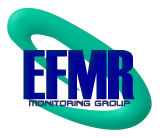FOR IMMEDIATE RELEASE Contact: Giselle Barry 202-225-2836, Eben Burnham-Snyder 202-225-6065 Markey: NRC Directing Secrecy in the Wake of Fukushima Meltdown Limits Placed on Time, Scope, Transparency of Inspections Designed to Assess U.S. Vulnerability WASHINGTON (April 15, 2011) – In the wake of the Fukushima disaster, the Nuclear Regulatory Commission (NRC) set out to inspect the U.S. fleet of nuclear reactors to ensure their safety and report publicly on its findings. Yet today, Rep. Edward J. Markey (D-Mass.) revealed that significant limits may be imposed on the inspections, and that inspectors also have been directed to keep many of the most serious vulnerabilities secret. In a letter sent to Greg Jaczko, the Chairman of the Nuclear Regulatory Commission, Rep. Markey notes that he has been informed that inspectors are limited to 40 hours to check a nuclear power plant with only one unit, and 50-60 hours to check a plant with multiple units. Inspectors were also initially instructed to limit their inspections only to the adequacy of safety measures needed to respond to “Design Basis Events.” These inspections were therefore looking at the vulnerabilities to events that have already been contemplated and analyzed by the NRC, but not to many of the events that occurred in Fukushima which were previously considered to be impossible and therefore not subject to regulation. When NRC's own inspectors complained about this limitation, it was removed, but inspectors were then directed not to record any observations or findings of vulnerabilities that went beyond design-basis events in any document that would eventually become public as part of the NRC's review. “These limitations, if true, severely undermine my confidence in the Commission’s interests in conducting a full and transparent assessment of the ability of U.S. nuclear power plants to be kept safe in the event of an incident that exceeds the current design basis assumptions regarding earthquakes or electricity outages -- such as the ones that occurred in Japan,” wrote Rep. Markey, who is the top Democrat on the Natural Resources Committee and a senior member of the Energy and Commerce Committee. “This also seems entirely at odds with the Commission-approved direction to study the implications of the Fukushima meltdown on U.S. facilities and report publicly on the findings of the study. We should stand prepared to learn from the catastrophe in Japan and plan ahead to address what was unforeseen but occurred anyway, rather than attempting to hide our vulnerabilities from public view and, potentially, use the fact that the information will be kept secret to avoid taking all necessary regulatory action.” “The fact that they plan to keep the most serious vulnerabilities secret raises questions about whether the Nuclear Regulatory Commission is more interested in public relations than public safety,” said Rep. Markey in additional comments. In the letter, Rep. Markey asks Chairman Jaczko and the NRC to respond to these reports, and ensure that the decision to hide some of the results from public view is reversed. Rep. Markey also asks whether U.S. nuclear power plants' vulnerability to events that are known or thought to have occurred in Japan – such as more severe earthquakes and tsunamis than expected, the melting of core nuclear fuel rods through the reactor pressure vessel, hydrogen explosions in reactor cores and spent nuclear fuel areas, long electricity outages and losses of cooling to reactor cores and spent nuclear fuel storage areas, and the failure of multiple safety systems and diagnostic capabilities – will be both analyzed and reported on publicly as the Commission was supposed to do. The full letter is available HERE.
Subscribe to:
Post Comments (Atom)

No comments:
Post a Comment